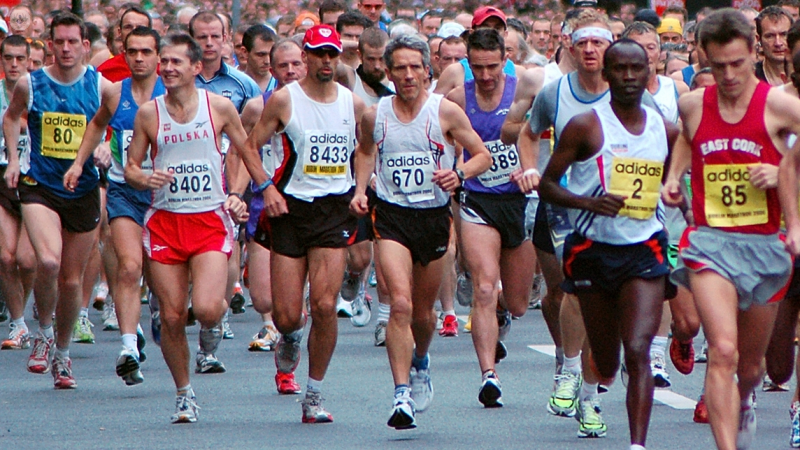Should marathon runners pay a visit to a cardiologist?
Written by:If exercise is good for the heart, why do you hear about athletes in their prime, such as footballer Fabrice Muamba, collapsing while competing in their sport? The answer is usually that the athlete has an undetected cardiovascular condition. So, is it worth visiting a cardiologist before running a marathon? Dr Mark Mason is here to offer his expert insight.

How do endurance sports affect the heart?
Exercise and intense physical exertion of any kind increase the heart rate as the body tries to get more oxygen to the muscles via the blood. Endurance sports force the heart to work harder for longer, putting extreme demands on the cardiovascular system.
For those people who have a pre-existing heart condition, the demands of intense sports can trigger a cardiac event. This can be very dangerous, especially if the heart condition has gone undetected until that moment.
Despite this, the overwhelming evidence is that exercise is highly beneficial for the majority of people, so, it’s important to keep active.
Who is particularly vulnerable to heart problems?
People over the age of 35 are generally at a higher risk of experiencing heart problems associated with exercise. This is due to the effects of ageing and lifestyle habits like smoking and unhealthy diets catching up with them. The majority of cardiac events in over-35s are caused by previously undiagnosed coronary artery disease.
Affected people under 35 may have an inherited heart condition. These range from various types of cardiomyopathies (affecting the ventricles of the heart) to harder-to-find channelopathies (underlying conditions causing abnormal rhythms in an otherwise normal heart).
There have been several cases of high-profile sportspeople under the age of 35 suffering cardiac events due to undetected cardiovascular conditions, including footballer Fabrice Muamba and cricketer James Taylor. While both survived, tragically, there are fatalities in endurance events every year.
Is it worth visiting a cardiologist before an event like a marathon?
Yes! Particularly if you are over 35 and participating in your first marathon/endurance event (and a medical certificate is likely to be required by the organisers).
In fact, in Italy, everyone between the ages of 16 and 35 who wants to participate in sport at any level has to undergo screening – by law. Consequently, it’s estimated that Italy has reduced its instances of cardiac events by around 90 per cent. In spite of this, high-profile cases like Piermario Morisini and David Astori show there is still a risk.
How can someone prepare their heart for an endurance event?
Anyone preparing for an endurance event should follow an organised training schedule which will be designed to manage the stress on the body overall, and the heart in particular.
For over-35s, the risk of cardiovascular disease can be reduced by adopting a healthy diet and cutting out smoking.
It is more difficult to reduce the risk of cardiac events in under-35s – particularly if the patient doesn’t know they have a problem to begin with. A simple heart tracing (electrocardiogram, or ECG), however, can often highlight a previously undiagnosed issue.
What signs should someone watch out for during the event?
Symptoms of palpitations, chest pain (including tightness, heaviness, or the sensation of having a belt being tightened around your chest), dizziness or blackouts during either training or the event should prompt consultation with a cardiologist with an interest in the field of sports cardiology.


